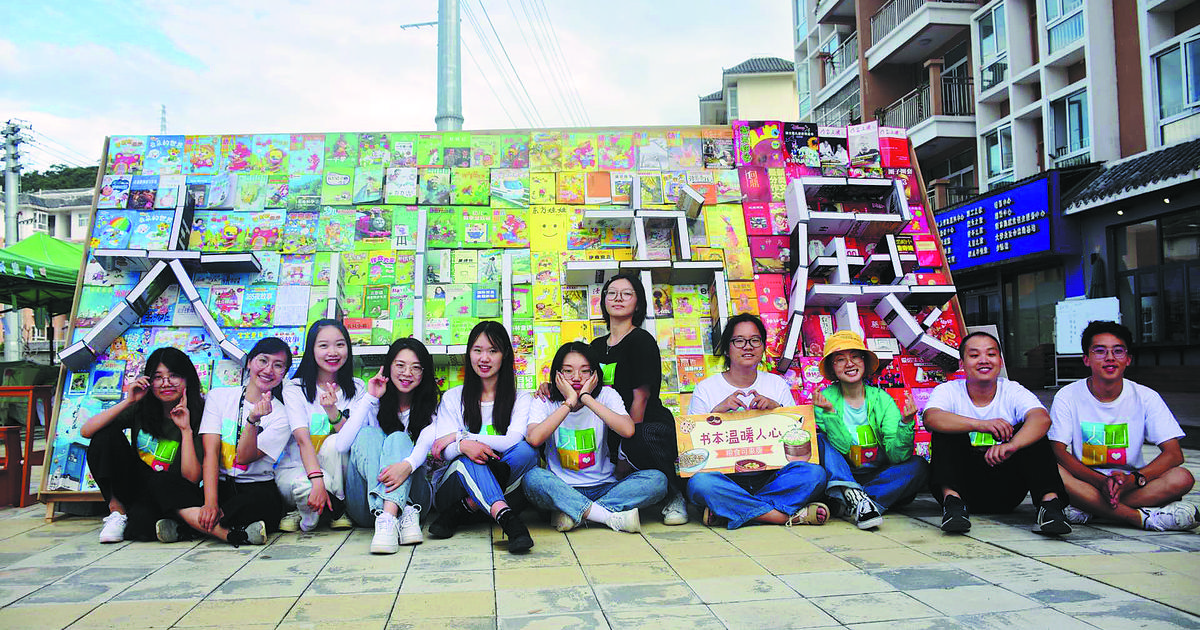Politics
Written by: Lin Jian
2020-01-22 00:33
Last updated: 2020-01-22 00:33Ten years ago, anti-high-speed rail funding allowed the society to pay attention to the phenomenon of "post-eighties" youth protests. The five district general speeches initiated by the Social Democratic Party and the Citizen Party had a profound impact on the political situation in the next ten years. In addition to Chen Weiye, Liang Jiajie, Chen Shuzhuang, Huang Yumin, and Liang Guoxiong, who were then members of the Legislative Council, five college students formed the "College Diploma 2012" to participate in the by-election. "Hong Kong 01" invited three of them, Zhou Cheng, the former Secretary-General of the Federation, Huang Yongzhi, the current member of Xiying District, and Guo Yongjian, the chairman of the Labor Party to discuss the significance of the action and review the ten-year struggle.
All three believed that the action in that year had a considerable enlightening effect on young people and protests in the future, and it was even the same as the "referendum effect" of last year's district board elections. The action also marked a democratic movement in Hong Kong, led by the parliament, and gradually launched into the public.
As the youth of social movement youths, they thought that when they were on the front line, the scale of the social movement was limited and the repression they faced was relatively slight. Zhou Cheng lamented that today's younger generation struggles with a far greater price than they do. "The worst situation of the year was probably a social service order, but now they have to face more than a few years in prison. "
The 10th Anniversary of the Five Districts' Resignations
+3
+2
Concept of "referendum" and "destiny autonomy" sprout to start youth participation in politics
In the same year, the five districts' general speeches were defeated by the establishment system, and "College 2012" was established to avoid the predicament of automatic by-election that could not be achieved. Zhou Cheng mentioned that they also hoped to bring out some voices outside the traditional pan-democracy during the "disguised referendum" operation. She pointed out that the concept of "referendum in disguise" was relatively new in Hong Kong at that time, and was rarely accepted by people at the time, but it is not new today, and many young protesters have told her that she was the general manager of the five districts. Inspiration. The anti-high-speed rail battle at that time made more citizens realize that the existence of functional constituencies would aggravate the people ’s livelihood policy toward certain people. The five districts ’general speeches had the theme of“ knock down functional constituencies ”and had already transmitted this information.
Huang Yongzhi pointed out that the democratic movement in the past ten years is actually a process of continuous awakening of citizens and continuous attempts by civilian forces. The general speech of the five districts is an outbreak of the gathering of many civilian forces in the past, and it marks the transition of resistance from parliament to civilian forces. Apply pressure. In the end, although the turnout rate was low, it still left some ideological legacy: "The biggest watershed in the past ten years or so was the umbrella movement in 2014. The theme of the word" Destiny Autonomy "was proposed. What does autonomy of destiny contain? This is a subject that reflects the subjectivity of Hong Kong people. In the five district referendums, more or less, the people who promoted this movement also began to have this consciousness. "
Guo Yongjian made it clear that the operation was called "failure" by the outside world, but since then, the concept of "referendum" has sprung up in the people. During the 2014 parade, the Democratic Party, which did not participate in the five districts' speeches, was the Legislative Council. Member He Junren also once proposed to resign from a super-seat to conduct a disguised referendum for political reform. They participated in the election as junior college students. Although they did not aim at winning seats, they also brought new life to politics: "For the time (many people) thought that the legislative council seats were unattainable, had many resources, and were very high. To be able to stand for election, social status has a different effect. "
Youth generation is unwilling to submit to existing power structures
In early 2010, anti-high-speed rail funding demonstrations revealed that younger generations were unwilling to submit to the existing power structure and were more inclined to take to the streets to fight. "80s" became one of the most important keywords in Hong Kong at that time. The three interviewees were all in the 80s and started to fight in the same era.
"The worst situation of the year was probably just a social service order, which would end in a few weeks and months, but many young people may now have a good future and they may face a sentence of more than a few years." Zhou Cheng sighed. New The confrontational environment facing a generation is more difficult and costly than them.
She recalled: "We were a student, and we had a lot of people participating in a parade with one or two hundred people. It ’s not like today. When you open a group on Facebook and Telegram open a group, you will respond to it. At that time, it took a lot of organization and time to mobilize a decent demonstration. "She mentioned that the demonstration was small and the government was not so keen to suppress it, but with the intensification of political conflicts in recent years, the number of protesters The methods have also been continuously upgraded, and the repression they have suffered has been increasing.
Guo Yongjian pointed to the ambivalence behind it: "Of course we want to develop a large-scale, hundreds of thousands, one million people parade, and when it (the demonstration) is large-scale, the suppression will be greater and greater, If (the number of parades) is not 100, they (the government) cannot afford to deal with us like this. "He pointed out that the number, methods and experience of young people participating in demonstrations have been accumulating since the return of more than two decades. In recent years, the speed of upgrading has been getting faster and faster, and the pressure on them will naturally become more severe.
Huang Yongzhi pointed out that Hong Kong ten years ago was a time when citizens started to awaken, but still tended to feel "cold." However, in the following one or two years, controversies such as self-driving tours between Guangdong and Hong Kong, dual-Africa visits to Hong Kong, and cross-border infrastructure emerged. Contradictions between China and Hong Kong became more acute, local issues arose, and the speed of civil awakening was significantly accelerated.
Zhou Cheng: Recognize personal expertise and don't want too much right and wrong
During the controversial period of anti-high-speed rail and political reform ten years ago, because there were fewer young female faces in politics at the time, Zhou Cheng obtained quite a few spotlights, and was once known as the "Goddess of Democracy." After graduating from the Department of Cultural Studies at the Chinese University of China in 2010, Zhou Cheng has been in the Philippines for six months, and then returned to Hong Kong to work as a journalist and study in the UK for a year. She currently works for a non-governmental organization (NGO) specializing in environmental issues and will write special reports as an independent journalist.
Regarding the choice of fading out of the political circle, Zhou Cheng revealed one of the personal factors: "In the face of pressure from the media or the public, there is a dilemma, and she feels more right and wrong, and her emotions will be quite negative." So she began to think, herself Whether it is suitable to stay in social or political circles. During her internship in the Philippines, she established her own interests: "Many interests have been established since that half of the year, and I have also begun to think that my abilities and interests will focus on reading, writing, and doing research. I was also encouraged to be a reporter. I also When I feel interested, in fact, journalists are also a very important position. "
Huang Yongzhi: Struggle demands political will and staying power
Huang Yongzhi and Guo Yongjian are still developing in the political circle. Huang Yongzhi worked as an NGO after graduating. Since 2014, he has served as an assistant to the Legislative Council for Liang Guoxiong and Liu Xiaoli. He then worked in Xiaoli Democracy Classroom. He participated in the district council elections last year and defeated the DAB Liu Tianzheng in Xiyingpan. District councillors, who are engaged in parliamentary politics; Guo Yongjian has been involved in politics and became a founding member of the Labour Party. He has been a member of the Tai Po District in 2015 and has been the chairman of the Labour Party since 2017.
Huang Yongzhi mentioned that one of the reflections of the past ten years is that the political resistance is very politically willful and it can persist in the face of huge political realities. He felt that his previous determination was inadequate, but after six months of anti-revision law, he came up with the idea of "don't let it go" and "what he will do". In particular, he thought that in the constituency to which he belongs, the area of the China Liaison Office, he also thought that there might be no one other than himself who would challenge this constituency.
Guo Yongjian pointed out that the class federation actually mentioned some class issues at that time, and then invested in the Left 21 and formed the Labour Party. He believes that participating in party work is also an opportunity for his left-wing platform to be presented in parliament. He mentioned that the issue of class politics was still successfully promoted in the first few years of the Labour Party's establishment, and society would also discuss real estate hegemony and the tide of dock workers. However, local issues became the main axis of Hong Kong's political contradictions, which is another story.
In the anti-revision demonstrations that broke out in 2019, more than 7,000 people were arrested. (Profile picture)
A message to enrich myself "Hope for contribution to Hong Kong in the future"
In the end, Zhou Cheng pointed out that the discussion topics of civil society in Hong Kong are relatively narrow, and she will also ask herself, assuming that Hong Kong people today have successfully fought against each other and set up an elected government, what policy issues can we effectively promote and have a substantive platform and vision. She believes that there are many different positions in the struggle. Someone needs to be involved in different policy issues to contribute to Hong Kong in the future: "Each of us store a little ammunition and a little capacity is also a way to fight." Think that the environmental issue that he is currently paying attention to is "off the ground".
"Some abilities will follow you for a lifetime, and these abilities will be used no matter what position you are in, and I will hold this hope." Zhou Cheng said.
[Interview] Ten Years' Review of the Five Districts Liang Guoxiong: The referendum effect could have appeared earlier
[Interview] Liang Jiajie advocates the "Trilogy of Amnesty" to independently investigate and redefine the mass movement
[Interview] Democrats Rethink the Rule of Law Liang Jiajie: Only those in power are best able to undermine the rule of law
[Interview] Lin Ruihua, who considers participating in the legislative catering industry, aims to add 5,000 voters to shake Zhang Yuren
Anti-revision demonstrating political reform plan fugitives regulations 01 Politics Guo Yongjian District Council Election 2019-Central and Western District-Sai Ying Pun 01 Video








